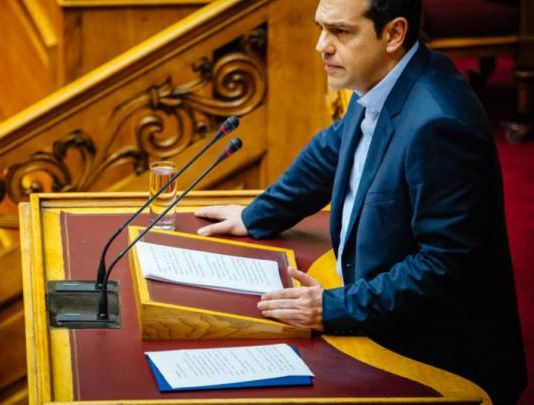By André Gerolymatos*, The Globe and MAil
There are two parts to the Greek economic crisis. The first is the structure of the European Union and the impact on its members. The second is how the major European powers feed on the minor ones.
In the period after the Second World War, a series of intergovernmental negotiations produced a succession of complex treaties that gave birth to the European Union. The EU evolved from the 1958 Treaty of Rome (which established the European Economic Community) to the 1992 Maastricht Treaty (which created the euro) and finally to the 2009 Treaty of Lisbon (which provided the EU with a foreign-policy capability).
The treaties have expanded the EU’s interventions, reorganized its institutions and participants, and enlarged the organization to 28 countries. The treaties were negotiated by elected national governments and approved by state parliaments or, in some cases, public referendums.
Complementary to the governmental part has been the role of the Euro bureaucracy. Euro officials have overseen every aspect of life in the EU through rules and programs that gradually transformed what was previously the jurisdiction of national governments into EU authority. Euro bureaucrats working with national bureaucracies and social groups have spawned the specific rules and programs to carry out the overall objectives of the treaties.
The outcome has been a network of institutions and the establishment of common practices across Europe. From traffic laws to food safety, from health-care rights to Internet privacy, the EU increasingly and intrusively shapes public and private life for member states. The democratic legitimacy of the bureaucracy stems from the concept of technocratic expertise and the neutrality of law, which ideally treats all Europeans and European states as equals.
This notion of equality has been torn apart by the divisions over what to do with Greece. The Greek economic crisis has been too big a challenge for the EU to handle through its traditional mechanisms. The International Monetary Fund and a small army of economists have exposed the German government fixation with austerity as counterproductive. It has also fractured EU solidarity. Indeed, the events of the past few weeks have made a mockery of Germany’s euro zone policy and has cost that country a great deal of moral capital.
There is no doubt that the Greeks are responsible for their economic demise, but they are not alone – they had help from some of their European partners, who were eager to sell to the poor man of Europe.
During the first decade of this century, Greece was among the top importers of weapons in the world. In 2009, the year after the financial crash, Greece spent €8-billion – 3.5 per cent of its GDP – on armaments. German companies Ferrostaal, Rheinmetall and Daimler-Benz sold Greece tanks and other weapons that were not necessary for the country’s defence. In 2010, while the EU imposed severe cutbacks on Greece, the Germans sold the bankrupt country still more weapons, including a submarine and 223 howitzers worth €475-million. In the same year, the French peddled the Greeks €935-million worth of military aircraft.
The German and French arms industries bribed Greek politicians to betray their country. These companies received minor fines while the Greeks arrested former defence minister Akis Tsochatzopoulos, the recipient of massive bribes, and convicted him of corruption in 2013.
It is implicitly understood that Greece will continue to pay for past and current purchases of weapons. The EU bailouts will pick up the cost. Greek social spending has been cut by 9 per cent while military budgets have risen by as much as 18 per cent.
During the Cold War, Greece was a front-line state and it was necessary to maintain a high military posture. Greece, Canada, the United States and other North Atlantic Treaty Organization (NATO) countries expended considerable capital to defend Europe and Germany.
But after the collapse of the Soviet Union, selling weapons to Greece was fiscally irresponsible and ultimately a disservice to the EU.
The solution to the euro zone nightmare is a European federation, one that, like the United States and Canada, transfers financial support from richer jurisdictions to the less wealthy. A European federation would also have responsibility for ensuring fiscal responsibility – and thus avoid Greek-style debt crises.
*André Gerolymatos is director of the Stavros Niarchos Foundation Centre for Hellenic Studies at Simon Fraser University in Vancouver.









